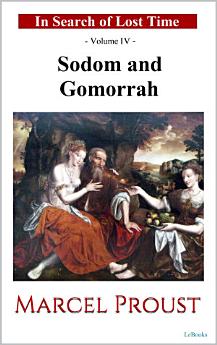Sodom and Gomorrah
Información sobre este eBook
Since its publication, Sodom and Gomorrah has been noted for its psychological acuity and its bold treatment of subjects rarely addressed openly in its time. Proust's intricate prose, long introspective passages, and exploration of memory and perception continue to challenge and reward readers. The novel advances the series' central questions about time, love, and self-knowledge, using subtle shifts in relationships and inner thoughts to chart the evolving consciousness of its narrator.
The enduring relevance of Cities of the Plain lies in its unflinching portrayal of human vulnerability and the tension between public identity and private truth. As part of Proust's monumental work, it remains a landmark in modern literature, offering deep insight into the nature of desire and the forces—emotional, cultural, and temporal—that shape human lives.
Acerca del autor
Marcel Proust was a French novelist, essayist, and critic, widely regarded as one of the most significant literary figures of the 20th century. Born in Auteuil, a suburb of Paris, Proust is best known for his monumental seven-volume novel In Search of Lost Time ( À la recherche du temps perdu), a work that revolutionized the form and scope of the modern novel. Through introspection, memory, and detailed psychological exploration, Proust crafted a richly textured narrative that has influenced generations of writers.
Proust's early writings include essays and short stories published in literary journals, but it was In Search of Lost Time, published between 1913 and 1927, that defined his legacy. The novel explores themes of memory, time, art, love, and identity through the narrator's reflections on his life and the people around him. One of its most famous passages — about the taste of a madeleine dipped in tea — triggers an involuntary memory that opens the door to an exploration of the past, demonstrating Proust's concept of "mémoire involontaire."
Proust's influence on literature is vast. His introspective style and exploration of subjective time prefigured many of the themes that would come to define modernist and postmodernist literature. Writers such as Virginia Woolf, James Joyce, and Samuel Beckett drew inspiration from his techniques and thematic focus. His method of delving into the inner workings of the human mind and his emphasis on sensory experience and memory profoundly altered the structure of the novel.
Beyond literary circles, Proust's insights into human nature, art, and memory continue to resonate with philosophers, psychologists, and artists. His work is often cited as a deep meditation on the passage of time and the persistence of the self amid change.











